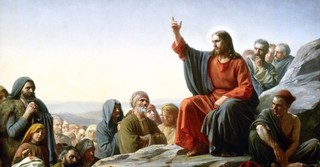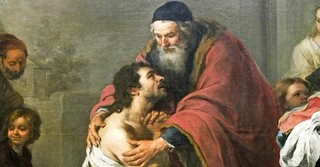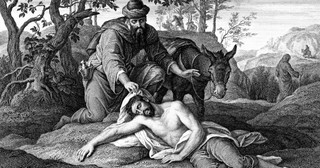Cain and Abel - Bible Story
Share
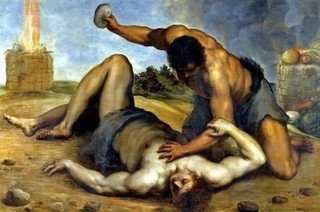
Bible Story of Cain and Abel
This is a summary of the Biblical account of brothers Cain and Abel. You can read more in-depth Bible verses from the Scripture below and use the articles and videos to understand the meaning behind this teachable event in the Bible. For a quick overview, Cain and Abel were the first and second sons of Adam and Eve, respectively. While Cain was a farmer, Abel was a skilled shepherd who cared for the family's animals.
One day, Cain and Abel made sacrifices to the Lord to worship and thank Him. Cain brought some of the produce from the land, while Abel brought the firstborn of his sheep. God favored Abel's sacrifice because it was an offering that came from the best Abel had to give. This made Cain very angry and jealous. Cain lured his brother Abel into the fields and killed him with a rock. The Lord calls to Cain, asking what happened, and after Cain lies about killing his brother, God punishes Cain. While God's harsh punishment on Cain was that he would no longer be able to grow crops on his land, He did promise Cain that no one would kill him.
What the Bible Says About Cain
Cain's name means "a possession; a spear." The first-born son of Adam and Eve (Genesis 4). He became a tiller of the ground as his brother Abel followed the pursuits of pastoral life. He was "a sullen, self-willed, haughty, vindictive man; wanting the religious element in his character, and defiant even in his attitude towards God."
It came to pass "in process of time" (marg. "at the end of days"), i.e., probably on the Sabbath, that the two brothers presented their offerings to the Lord. Abel's offering was of the "firstlings of his flock and of the fat," while Cain's was "of the fruit of the ground." Abel's sacrifice was "more excellent" (Hebrews 11:4) than Cain's and was accepted by God. On this account, Cain was "very wroth" and cherished feelings of murderous hatred against his brother and was at length guilty of the desperate outrage of putting him to death (1 John 3:12).
For this crime, he was expelled from Eden and henceforth led the life of an exile, bearing upon him some mark which God had set upon him in answer to his cry for mercy so that thereby he might be protected from the wrath of his fellow men; or it may be that God only gave him some sign to assure him that he would not be slain (Genesis 4:15). Doomed to be a wanderer and a fugitive in the earth, he went forth into the "land of Nod," i.e., the land of "exile," which is said to have been in the "east of Eden."
There, he built a city, the first we read of, and called it after his son's name, Enoch. His descendants are enumerated to the sixth generation. They gradually degenerated in their moral and spiritual condition till they became wholly corrupt before God. This corruption prevailed, and at length, the Deluge was sent by God to prevent the final triumph of evil. (Easton's Bible Dictionary)
Seven things we know about Cain:
1. He worshiped in self-will
2. He was angry with God
3. He refused to bring a sin offering
4. He murdered his brother
5. He lied to God
6. He became a vagabond
7. Nevertheless, He was the object of the divine care
What the Bible Says About Abel
Abel's name means "a breath, or vanity, a grassy place, a meadow." He was the second son of Adam and Eve. He was put to death by his brother Cain (Genesis 4:1-16). Guided by the instruction of their father, the two brothers were trained in worshipping God. "And in process of time" (marg. "at the end of days," i.e., on the Sabbath), each of them offered up to God the first fruits of his labors.
Cain, as a husbandman, offered the fruits of the field; Abel, as a shepherd, of the firstlings of his flock. "The Lord had respect unto Abel and his offering, but unto Cain and his offering he had not respect" (Genesis 4:3-5). On this account, Cain was angry with his brother and formed the design of putting him to death, a design which he at length found an opportunity to carry into effect (Genesis 4:8 Genesis 4:9. Compare 1 John 3:12).
There are several references to Abel in the New Testament. Our Saviour speaks of him as "righteous" ( Matthew 23:35 ). "The blood of sprinkling" is said to speak "better things than that of Abel" (Hebrews 12:24); i.e., the blood of Jesus is the reality of which the blood of the offering made by Abel was only the type. The comparison here is between the sacrifice offered by Christ and that offered by Abel, and not between the blood of Christ calling for mercy and the blood of the murdered Abel calling for vengeance, as has sometimes been supposed.
It is also said (Hebrews 11:4) that "Abel offered unto God a more excellent sacrifice than Cain." This sacrifice was made "by faith;" this faith rested in God, not only as the Creator and the God of providence but especially in God as the great Redeemer, whose sacrifice was typified by the sacrifices which, no doubt by the divine institution, were offered from the days of Adam downward. On account of that "faith" that looked forward to the great atoning sacrifice, Abel's offering was accepted by God. Cain's offering had no such reference and, therefore, was rejected. Abel was the first martyr, as he was the first of our race to die. (Easton's Bible Dictionary)
5 Descriptions of Abel
Shepherd: "Abel was a keeper of sheep, but Cain was a tiller of the ground," thus representing the two fundamental pursuits of civilized life, the two earliest subdivisions of the human race. On the Hebrew tradition of the superiority of the pastoral over agricultural and city life, see The Expositor T, V, 351. The narrative may witness the primitive idea that pastoral life was more pleasing to Yahweh than husbandry.
Worshipper: "In process of time," the two brothers came solemnly to sacrifice unto Yahweh, to express their gratitude to Him whose tenants they were in the land (Genesis 4:3,4. See SACRIFICE). How Yahweh signified His acceptance of the one offering and rejection of the other, we are not told. That it was due to the difference in the material of the sacrifice or their manner of offering was probably the belief among the early Israelites, who regarded animal offerings as superior to cereal offerings. Both kinds, however, were fully in accord with Hebrew law and custom. It has been suggested that the Septuagint rendering of Genesis 4:7 makes Cain's offense a ritual one, the offering not being "correctly" made or rightly divided, and hence rejected as irregular. "If thou makest a proper offering, but dost not cut in pieces rightly, art thou not in fault? Be still!" The Septuagint took the rebuke to turn upon Cain's neglect to prepare his offering according to strict ceremonial requirements. dieles (Septuagint in the place cited.), however, implies nathach (nattach) and would only apply to animal sacrifices. Compare Exodus 29:17; Leviticus 8:20; Judges 19:29; 1 Kings 18:23; and see COUCH.
Righteous Man: The true reason for the Divine preference is doubtless to be found in the disposition of the brothers (see \CAIN\). Well-doing consisted not in the outward offering (Genesis 4:7) but in the right state of mind and feeling. The acceptability depends on the inner motives and moral characters of the offerers. "By faith Abel offered unto God a more excellent (abundant, pleiona) sacrifice than Cain" (Hebrews 11:4). The "more abundant sacrifice," Westcott thinks, "suggests the deeper gratitude of Abel, and shows a fuller sense of the claims of God" to the best. Cain's "works (the collective expression of his inner life) were evil, and his brother's righteous" (1 John 3:12). "It would be an outrage if the gods looked to gifts and sacrifices and not to the soul" (Alcibiades II.149E.150A). Cain's heart was no longer pure; it had a criminal propensity, springing from envy and jealousy, rendering his offering and person unacceptable. His evil works and hatred of his brother culminated in the act of murder, specifically evoked by the opposite character of Abel's works and the acceptance of his offering. The evil man cannot endure the sight of goodness in another.
Martyr: Abel ranks as the first martyr (Matthew 23:35), whose blood cried for vengeance (Genesis 4:10; compare Revelation 6:9,10) and brought despair (Genesis 4:13), whereas Jesus appeals to God for forgiveness and speaks peace (Hebrews 12:24) and is preferred before Abel's.
Type: The first two brothers in history stand as the types and representatives of the two main and enduring divisions of mankind and bear witness to the absolute antithesis and eternal enmity between good and evil. (International Standard Bible Encyclopedia)
The Sacrifices and Devotions of Cain and Abel
In the process of time, when they had improved their respective callings (Heb. At the end of days, either at the end of the year, when they kept their feast of in-gathering or perhaps an annual fast in remembrance of the fall, or at the end of the days of the week, the seventh day, which was the Sabbath)—at some set time, Cain and Abel brought to Adam, as the priest of the family, each of them an offering to the Lord. There was a difference in the offerings they brought. It is expressly said (Heb. 11:4) Abel’s was a more excellent sacrifice than Cain’s: either (1.) In the nature of it.
Cain’s was only a sacrifice of acknowledgment offered to the Creator; the meat offerings of the fruit of the ground were no more, and, for aught I know, they might be offered in innocency. But Abel brought a sacrifice of atonement. The blood whereof was shed in order to remission, thereby owning himself a sinner, deprecating God’s wrath, and imploring his favor in a Mediator. Or, (2.) In the qualities of the offering. Cain brought of the fruit of the ground, any thing that came next to hand, what he had not occasion for himself or what was not marketable. But Abel was curious in the choice of his offering: not the lame, nor the lean, nor the refuse, but the firstlings of the flock —the best he had, and the fat thereof —the best of those best.
The great difference was this, that Abel offered in faith, and Cain did not. There was a difference in the principle upon which they went. Abel offered with an eye to God’s will as his rule, and God’s glory as his end, and in dependence upon the promise of a Redeemer; but Cain did what he did only for company’s sake, or to save his credit, not in faith, and so it turned into sin to him. Abel was a penitent believer, like the publican that went away justified: Cain was unhumbled; his confidence was within himself; he was like the Pharisee who glorified himself, but was not so much as justified before God. (excerpts from Matthew Henry Commentary)
The Anger and Sin of Cain
Many lessons come to us from this section. Its general purport is to show the growth of sin and its power to part man from man even as it has parted man from God. We may call the whole 'The beginning of the fatal operations of sin on human society.' The sin here appears as having the power to bar men's way to God. Much ingenuity has been spent on why Abel's offering was accepted and Cain's rejected. Cain's offering had no sense of dependence, no outgoing of love and trust, no adoration—though it may have had fear—and no moral element. So it had no sweet odor for God. Abel's was sprinkled with some drops of the incense of lowly trust, and came from a heart which fain would be pure; therefore, it was a joy to God.
The deadly fruit of hate is taught in the brief account of the actual murder. Notice the impressive plainness and fewness of the words. Cain rose against his brother and slew him.' A kind of horrorstruck awe of the crime is audible. Observe the emphasis with which 'his brother's repeated in the verse and throughout. Observe also the vivid light thrown by the story on the rise and progress of the sin. It begins with envy and jealousy. Cain was not worthy because his offering was rejected. What did he care for that? But what angered him was that his brother had what he had not. So selfishness was at the bottom, and that led on to envy, and that to hatred. Then comes a pause, in which God speaks remonstrances—as God's voice—conscience—does now to us all—between the imagination and the act of evil. A real or a feigned reconciliation is effected. The brothers go in apparent harmony to the field. No new provocation appears, but the old feelings, kept down for a time, come in again with a rush, and they sweep away Cain. Hatred left to work means murder.
Cain's defiant answer teaches us how a man hardens against God's voice. It also shows us how intensely selfish all sin is, and how weakly foolish its excuses are. It is sin which has rent men apart from men, and made them deny the very idea that they have duties to all men. The first sin was only against God; the second was against God and man. The first sin did not break, though it saddened human love; the second kindled the flames of infernal hatred and caused the first drops to flow from the torrents of blood soaking the earth. When men break away from God, they will soon murder one another. Cain was his brother's keeper. His question answered itself. If Abel was his brother, he was bound to look after him. His self-condemning excuse is but a specimen of the shallow pleas by which the forgetfulness of duties we owe to all mankind and all sins are defended.
(excerpt provided by The Book of Genesis Commentary)
The Mark of Cain
Genesis 4:15 states, "But the LORD said to him, “Not so ; anyone who kills Cain will suffer vengeance seven times over.” Then the LORD put a mark on Cain so that no one who found him would kill him, about which there is a variety of sentiments." Some say the mark of Cain was a horn in his forehead: others, a leprosy in his face; others, a wild ghastly look; others, a shaking and trembling in all his limbs; and others, that there was an earthquake wherever he stepped: and others will have it, that the dog which guarded Abel's flock was given him to accompany him in his travels, by which sign it might be known that he was not to be attacked, or to direct him from taking any dangerous road: some say it was a letter imprinted on his forehead, either taken out of the great and glorious name of God, as the Targum of Jonathan, or out of his own name, as Jarchi; others the mark or sign of the covenant of circumcision but as the word is often used for a sign or miracle, perhaps the better rendering and sense of the words may be, "and the Lord put", or "gave a sign" that is, he wrought a miracle before him to assure him, that "whoever found him should not kill him": so that this was not a mark or sign to others, to direct or point out to them that they should not kill him, or to deter them from it; but was a sign or miracle confirming him in this, that no one should kill him; agreeably to which is the note of Aben Ezra, "it is right in my eyes that God made a sign (or wrought a miracle) for him, until he believed;'' by which he was assured that his life would be secure, go where he would; even that no one should "strike" F4 him, as the word is, much less kill him. (John Gill's Exposition of the Bible)
What Is the Meaning of the Story of Cain and Abel?
The book of Genesis is a book of beginnings. It records the founding events that set the rest of human history and God’s salvation plan in motion. Although the content of the book itself was originally recorded (or compiled) by Moses in Hebrew, the title given in our modern Bibles comes from the Greek word which means “origin.” As we would expect, many “firsts” are recorded: the first words of God spoken about our universe (Genesis 1:3); the first day (Genesis 1:5), the first week (Genesis 2:1-3), the first people (Genesis 1:27), etc. Genesis 4 gives us the account of the first two siblings, Cain and Abel. They are the initial two people born with a sinful nature. In the broader scope of the biblical narrative, the account of Cain and Abel introduces the reader to a harsh reality—all generations of humanity are bound to the curse of sin perpetuated by Adam’s sin in the Garden of Eden.
Of the two brothers, Cain was the firstborn. Scripture records the words of Eve when she gave birth to Cain, “I have gotten a man with the help of the Lord” (Genesis 4:1). Such a statement may give pause to the reader and cause them to ask if Scripture is advocating men as being more valuable than women. This is not the case. From the beginning, God clearly teaches both men and women are made in His image (Genesis 1:27). To understand this statement, one must keep in mind the Lord’s words to the serpent in the Garden of Eden. God promised to redeem humanity from the curse of sin through the male offspring of Eve (Genesis 3:15). Furthermore, in the beginning, God blessed Adam and Eve, telling them to “be fruitful and multiply” (Genesis 1:28).
By God’s design, childbearing is a blessing of marriage. Cain’s birth was significant for at least two reasons. First, it was proof of God’s faithfulness since He had not withheld His goodness from them, allowing the divine blessing of childbearing to continue despite their sinfulness. Secondly, as a male child, Cain served as the first hopeful prospect for God’s promised Redeemer. With this in mind, we can see Eve did not degrade womankind. Instead, she rejoiced in God’s goodness and expressed optimism toward humanity’s salvation.
No comments of Eve are recorded upon Abel’s birth but based on the context, the same benevolent dispositions which surround Cain easily extended to Abel as well (Genesis 4:2a).
From there, the biblical text jumps ahead in time when both Cain and Abel were of age to work independently. Abel kept flocks while Cain tilled the ground (Genesis 4:2b). In time, both brothers offered a sacrifice to the Lord. Abel selected from the firstborn of his flock, whereas Cain brought an offering from the fruit on the ground. The Lord accepted Abel’s offering and rejected Cain’s. Much debate and conjecture have risen to pinpoint the particular nature of each brother’s sacrifice which caused the Lord to respond differently. This article will not delve into this discussion. Instead, it will focus on what Scripture clearly reveals.
The author of Hebrews tells us Abel’s faith distinguished his sacrifice from Cain’s (Hebrews 11:4). The Lord rejected Cain’s sacrifice because of his wicked heart (1 John 3:11-12). God again displayed His faithfulness and goodness to sinners as He gave counsel to Cain and provided an opportunity to repent. God warned Cain to master his sinful nature because it would end up mastering him if he didn’t (Genesis 4:6-7). Cain’s following actions reveal the wickedness of his heart to the reader. Instead of heeding God’s word and repenting, Cain murdered his brother out of hatred and envy (Genesis 4:8). God then confronted Cain and gave him a chance to confess his sin by asking, “where is Abel your brother?” Yet again, Cain demonstrated the wickedness of his heart. First, he blatantly lied to the Lord saying, “I don’t know.” He then gave a callous, sarcastic remark as he asked the Lord, “Am I my brother’s keeper?” (Genesis 4:9). Such a horrid response demonstrated Cain’s lack of remorse.
When Cain failed to confess his sin, God openly confronted him, pointing to the spilled blood of his brother (Genesis 4:10-11). As a result of Cain’s sin, God punished him. Cain was cast out of the land of Eden, away from the presence of the Lord. He was cut off from his family and sentenced to a nomadic life. His labor as a tiller of the ground was cursed since the ground would no longer yield its strength (Genesis 4:11-16). Even though cursed, the Lord was merciful to Cain and put a mark on him to deter any family members from taking personal revenge for Abel’s death (Genesis 4:15).
Why Is the Story of Cain and Abel Significant?
The account of Cain and Abel has much to teach us. This article will only be able to briefly address some of the profound lessons in this account.
We must approach God on His terms. God does not accept any mere religious activity we throw His way. God is our holy Creator. We belong to Him. It is only right (and necessary) that we worship Him according to the conditions set by Him. In the account of Cain and Abel, the worship they offered the Lord was, by nature, a moral act that would incur God’s moral judgment. Both men approached God through the religious activity of sacrifice but with two different motives and, hence, two different results. This account teaches us there are only two kinds of worship in the Lord’s eyes: that which is acceptable to Him and that which is not. There is no such thing as a neutral act of worship.
The author of Hebrews expounds on this account, stating by faith Abel offered up a better sacrifice to God than Cain (Hebrews 11:4). It is most important to understand the author is not referring to the unbiblical teaching of positive faith profession, where Abel made his offering acceptable by merely believing it to be so. Instead, the faith the author refers to is grounded in God and His righteousness. With this kind of faith, a person trusts and acknowledges God as supreme, good, and worthy of complete devotion. With the same kind of faith, Abel offered his sacrifice. In turn, God gave His divine blessing by accepting Abel’s sacrifice and recognizing him as righteous.
Sin and righteousness do not mix. When God rejected his sacrifice, Cain’s reaction revealed the wicked condition of his heart. Instead of humbling himself and repenting to seek God on His terms, Cain became enraged. This reveals Cain’s self-righteous attitude. He felt God judged unfairly because he placed his own standards of worship above God’s. In an act of mercy, God presented His righteous standard to Cain and gave him an opportunity to seek Him in earnest (Genesis 4:7). Cain chose to reject the counsel of the Lord and murdered Abel out of hatred and envy. No doubt Cain felt convicted in the presence of his righteous brother, Abel. By contrast, righteousness exposes wickedness when the two are compared. Such conviction makes sinners uneasy because they do not want to face the reality of their sin. As a result, the wicked will often seek to remove any righteous influence which invades their life. Jesus spoke of this when He said, “For everyone who does evil hates the Light, and does not come to the Light for fear that his deeds will be exposed” (John 3:20). Cain serves as a foreboding teacher. In a fallen world of sinful people, Christians should expect hostile treatment when we live faithful lives as Christ’s ambassadors.
We cannot hide our sin from God. Even though Cain tried to cover up his sin by lying, God already knew what he had done (Genesis 4:10). Scripture reveals nothing can be hidden from the Lord who knows and judges all things (Hebrews 4:12-13). This means no sinner will ever get away with their sin. All people throughout history will stand before our Lord and receive His holy, righteous judgment. Those who have not put their complete faith (trust) in the saving work of Jesus Christ are doomed to pay the price of their sin by spending eternity in hell (1 Thessalonians 1:5-9). It is the natural inclination for all people, including Christians, to cover up their sins. Sinners will go to extremes to avoid facing the reality of their wickedness. People tell lies, live in privacy, and surround themselves with people who won’t say anything about their sins. Even well-meaning recovery groups run by Christians can easily turn into refugee camps for sinners which enable them to cope with their sin instead of repent.
The account of Cain and Abel teaches us many things. These two brothers amply exhibit the intense battle and contrast between sin and righteousness. As demonstrated by Cain’s actions, God calls us to: worship Him on His terms, live righteous lives (in faith), and confess our sins to Him, not cover them up. These are three pillars of Christian living that should undergird the life of the Church Body. That is not to say it will be easy. Sadly, at times it is more difficult to get along with brothers and sisters in Christ than with nonbelievers. However, this should not discourage us from doing good. Just as God sees all sin, our heavenly Father also takes note of all the good things we do in His name (Matthew 10:42). With this in mind, whenever you are tempted to be unloving towards your difficult church family, remember God is watching and you are indeed your brother’s keeper.
Read the full Scripture story of Cain and Abel below.
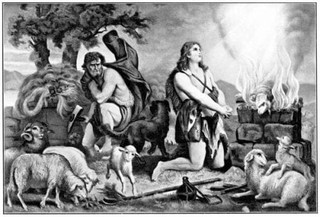
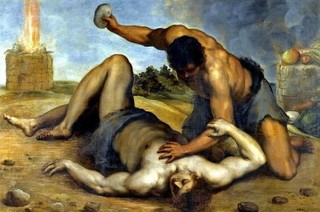
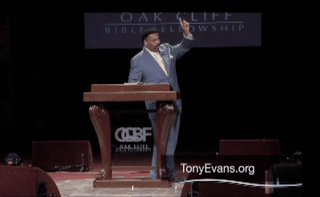
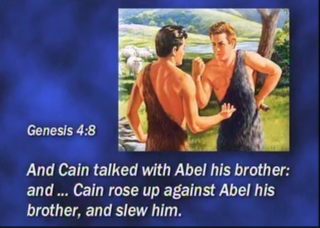
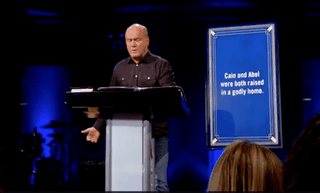
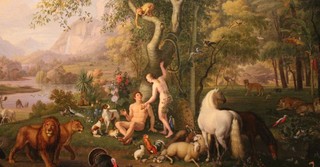
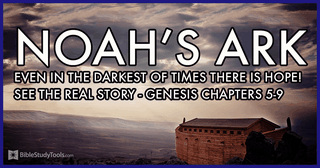
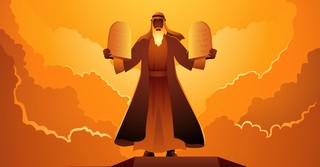
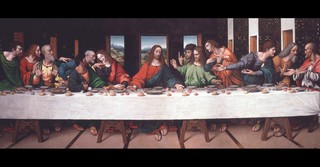

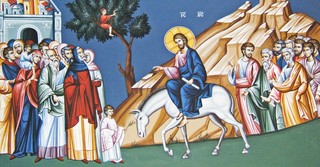
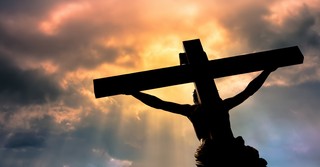
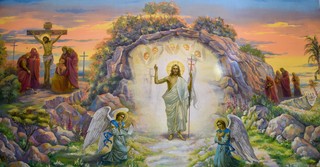
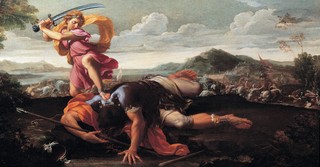
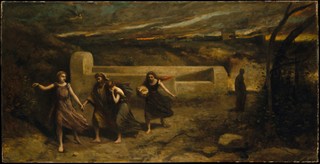
.800w.tn.jpg)
